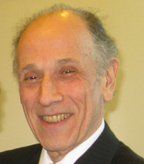Are We Treaters, Passers, or Doctors?
As often as not, the decision whether to treat or deny treatment to any elderly patient with cancer is a result of an oncologist’s impression of the individual person’s ability to benefit from and withstand the side effects of therapy. And that decision is usually based on a clinical assessment that is far more intuitive than it is scientific.
As often as not, the decision whether to treat or deny treatment to any elderly patient with cancer is a result of an oncologist’s impression of the individual person’s ability to benefit from and withstand the side effects of therapy. And that decision is usually based on a clinical assessment that is far more intuitive than it is scientific.
Today, two questions form the basis of much research in geriatric oncology, one of the (paradoxically) youngest disciplines in the field: How are we treating our older cancer patients? And how should we be treating them?

Richard Rosenbluth, MD
Some physicians will find a regimen for almost any patient of any age or health status who has been diagnosed with any type of cancer. It matters little whether we are treating someone with breast cancer or stage IV non–small-cell lung cancer. Those of us who do this are “treaters.”
Others among us, more skittish when dealing with older patients, may have an absolute age cutoff in mind when making treatment decisions. Rather than risk morbidity, these physicians-or “passers”-pass on almost any anticancer therapy, often denying such treatment to otherwise healthy, active seniors.
As a general rule, the automatic behavior of both treaters and passers is inappropriate. Clearly, there are many fit elderly patients who are not receiving useful treatments, while other, more frail patients are being overtreated.
Most of us, I suspect, are neither treaters nor passers. Rather, we evaluate every patient individually, attempting to weigh the benefits and risks of therapy, patient by patient. The choice is often clear to oncologists within minutes of entering the consultation room. The 85-year-old man with lymphoma who is still working a 40-hour week, and then skiing on weekends, is no more a challenge to us than is the 90-year-old lung cancer patient who is wheelchair-bound, oxygen-dependent, and physically debilitated.
It is the far larger, middle-ground patient population that is difficult to assess. Which elderly breast cancer patient should receive adjuvant chemotherapy, and which should more properly be treated with aromatase inhibitors? Can an older person with metastatic colon cancer tolerate FOLFOX, or would capecitabine (Xeloda) be a safer alternative?
To answer such questions, geriatricians have provided us with comprehensive geriatric assessment tools that thoroughly evaluate clinical status, medications, mobility, cognition, and nutrition. Unfortunately, however, these assessments take as much as an hour to perform, and few busy oncologists in an office practice can afford to expend that much time.
Clearly, a brief, reliable tool is necessary. Geriatric oncologists have been searching for such a holy grail for years, and it now appears likely that success is within reach. Group studies performed by the Cancer and Aging Research Group and others are close to finalizing a dependable, concise assessment tool (which I will discuss further in a future post), and the National Comprehensive Cancer Network is interested in providing it to the general oncologist. More work still needs to be done, but we can soon look forward to having a succinct set of clinical and even laboratory parameters by which to assess our elderly patient population.
Hopefully, treaters and passers will use this information and, thus, become “doctors” again.